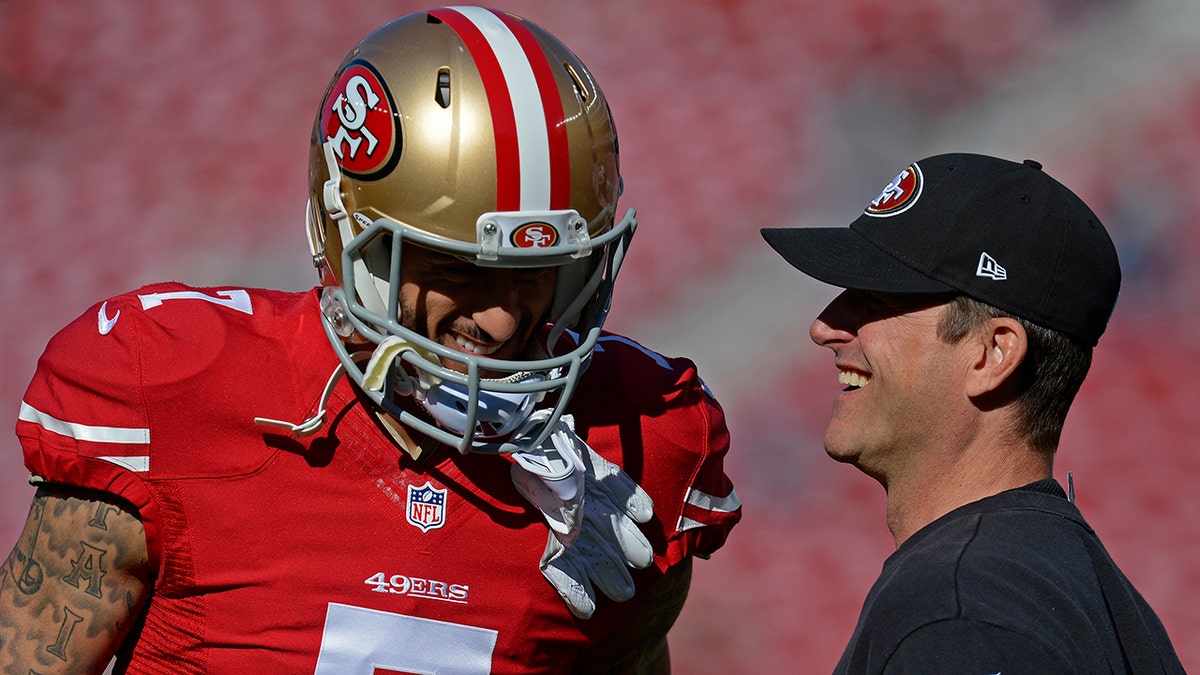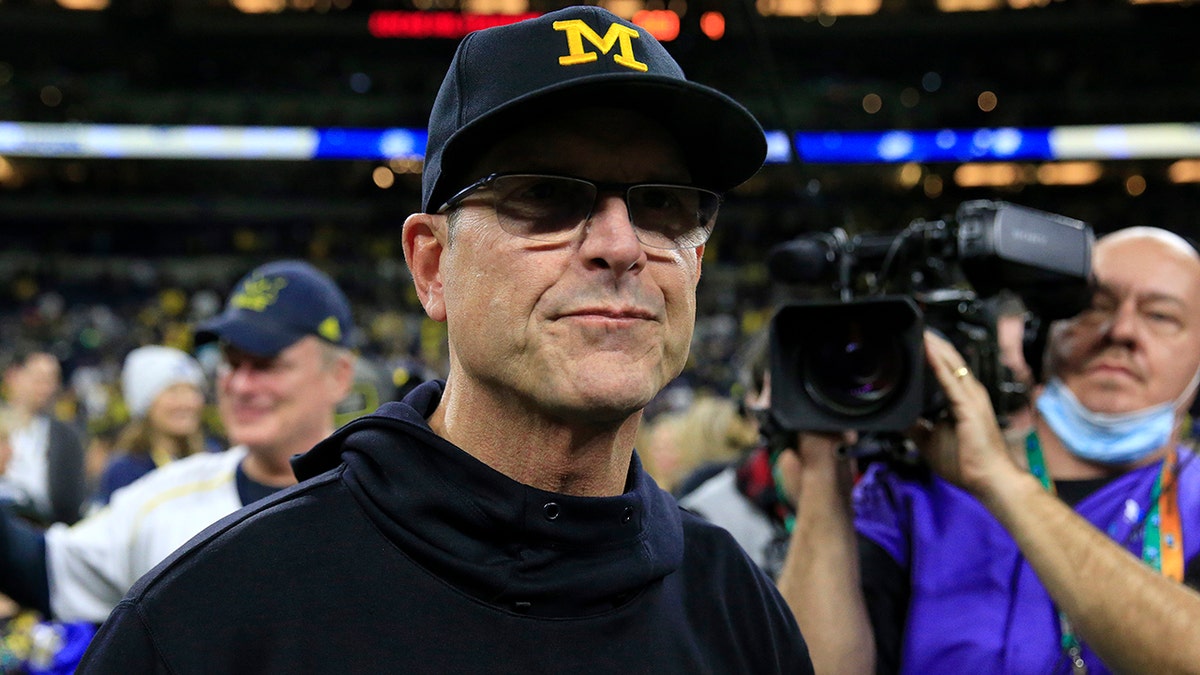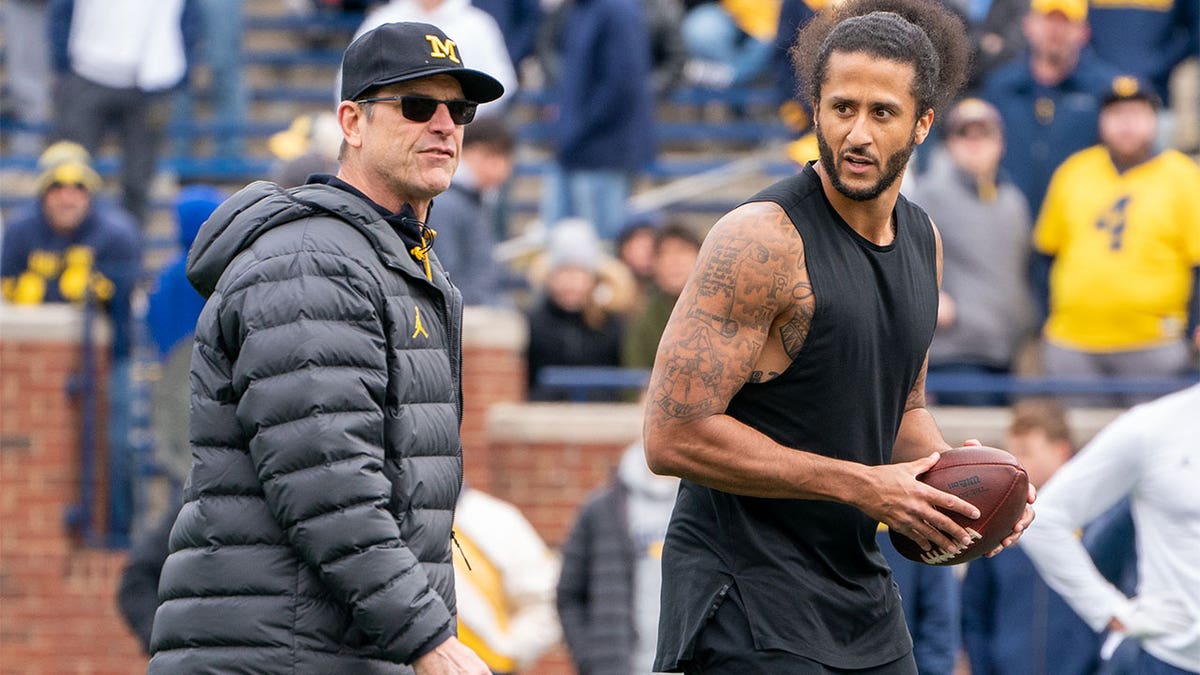West Point’s head football coach previews the 2022 season
Army West Point head football coach Jeff Monken provides perspective on the program and the unique recruiting process on ‘Fox & Friends Weekend.’
Jim Harbaugh built his career in the National Football League for almost 15 years as a quarterback for the Chicago Bears, Indianapolis Colts, Baltimore Ravens, and San Diego Chargers before retiring as a player in 2001. However, his stardom grew during his career as a coach in college football and later in the NFL, which saw him lead the San Francisco 49ers to the Superbowl. After leaving the NFL in 2014, Harbaugh returned to college football for his current position as the head football coach at the University of Michigan.
His time in the NFL as a coach won Harbaugh much acclaim after he brought San Francisco to the playoffs for three seasons after the team failed to make it to the NFC Championship game for eight consecutive seasons. One of the more famous games of Harbaugh's career as an NFL coach occurred in 2012 when the 49ers played against the Baltimore Raven, coached by Harbaugh's brother John in Super Bowl XLVII.
More recently, the beloved coach has become more politically outspoken off the field. During a right-to-life conference after the Supreme Court overturned Roe v. Wade, Harbaugh said he believed "in having the courage to let the unborn be born." The coach elaborated on his comments, saying he encourages his family and friends to go through with unplanned pregnancies because he and his wife would raise the child if they could not.
"I've told [them] the same thing I tell my kids, boys, the girls, same thing I tell our players, our staff members. I encourage them if they have a pregnancy that wasn't planned, to go through with it, go through with it" Harbaugh said. "Let that unborn child be born and if at that time, you don't feel like you can care for it, you don't have the means or the wherewithal, then Sarah and I will take that baby."

Jim Harbaugh was the head coach of the San Francisco 49ers from 2011-2014 before leaving to go the Michigan Wolverines. (JOSE CARLOS FAJARDO/MediaNews Group/Bay Area News via Getty Images)
What was Jim Harbaugh's NFL record?
As a coach in the NFL, Harbaugh had a limited career, only leading the 49ers from 2011 to 2014. However, his regular season head coaching record is 44 wins, 19 loses, and one tied game. His post-season statistics include five wins and three losses, giving a total NFL career record of 49-22-1.
However, his record in college football is much more extensive, with 117 wins in the regular season and 45 losses. As a player in the NFL, Harbaugh played in 177 games with 140 starts. He successfully made 2,305 of his 3,918 passes and has a total of 26,288 yards with 129 touchdowns.
What is Jim Harbaugh's salary at Michigan?
In February 2022, Harbaugh signed a five-year contract with the Wolverines that will pay him $36.7 million through 2026 with an annual salary of approximately $7 million, according to CBS Sports. He received more than a $3 million increase to base salary after reports circulated that he was considering making a return to the NFL.

Jim Harbaugh's current contract with the Michigan Wolverines, which pays him over $30 million for the next five years, means he's unlikely to return to the NFL. (Getty Images)
The deal also includes incentives that will pay Harbaugh if his team brings home a national title with a $1 million bonus.
CLICK HERE FOR MORE SPORTS COVERAGE ON FOXNEWS.COM
"I love Michigan Football, the University of Michigan and the Ann Arbor community," Harbaugh said in a statement. "My family and I are excited to continue leading this football program, and we are thankful for the support that our athletic department and university administration have demonstrated toward the team."
Will Jim Harbaugh return to the NFL?
Harbaugh confirmed in May 2022, shortly after signing his new contract with Michigan, that he will not make a return to the NFL.

Colin Kaepernick, right, pictured with Michigan Wolverine head coach Jim Harbaugh at Michigan Stadium on April 2, 2022 in Ann Arbor, Michigan. (Jaime Crawford/Getty Images)
At one point, the former 49ers head coach was looking the possibility of leading the Minnesota Vikings but never received an official offer. He closed the door to his NFL return during a spring practice news conference.
"Ultimately, I decided this is where I wanted to be," Harbaugh said. "And really, a lot of gratitude for that."
CLICK HERE TO GET THE FOX NEWS APP
Moreover, Harbaugh's current deal with the Wolverines includes a $3 million fee he would owe Michigan if he left for any reason. His annual buyout drops significantly to $2.25 million in the second year, $1.5 million in the third, $750,000 in the fourth, and no annual compensation in the last two years.










































